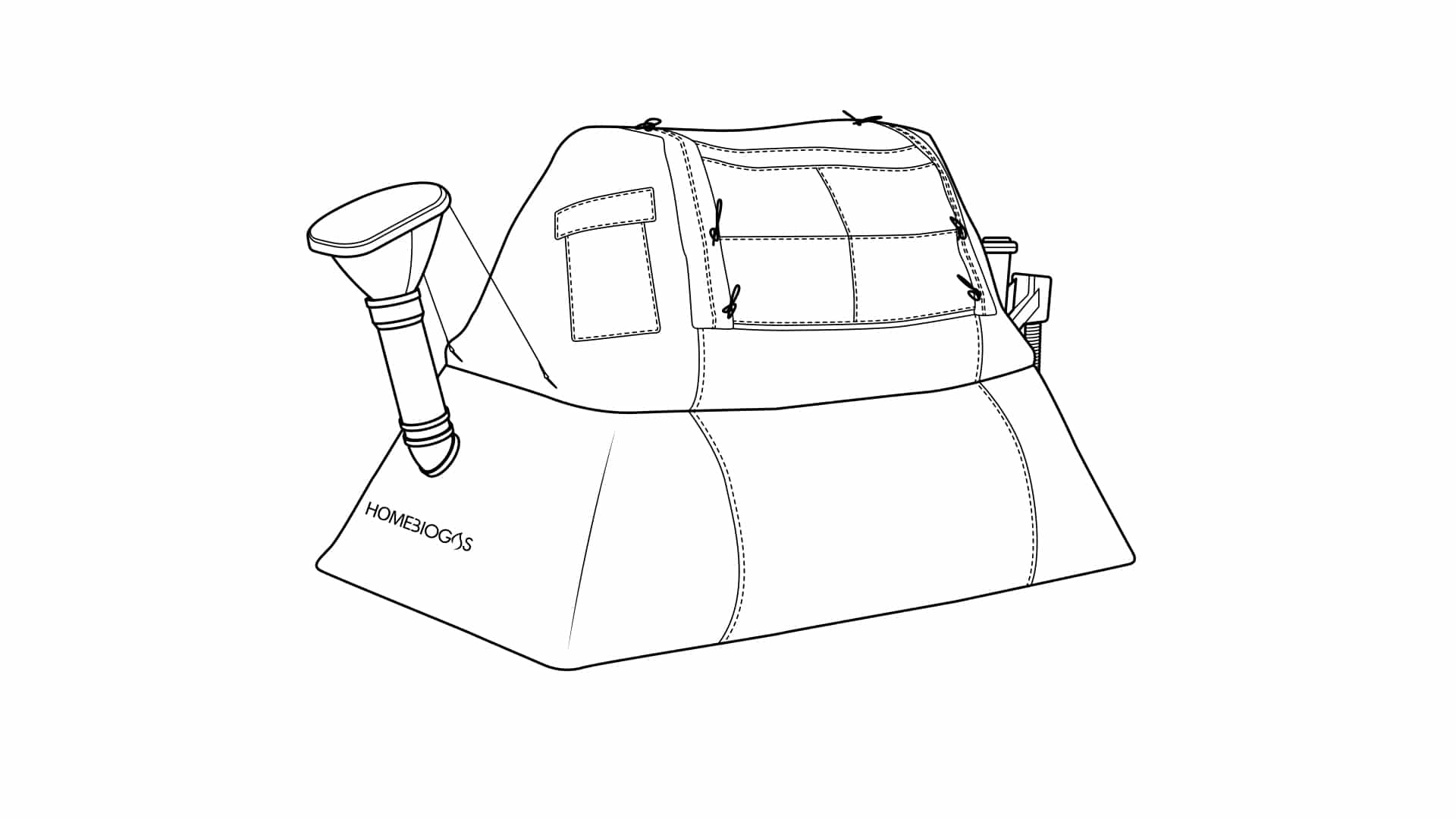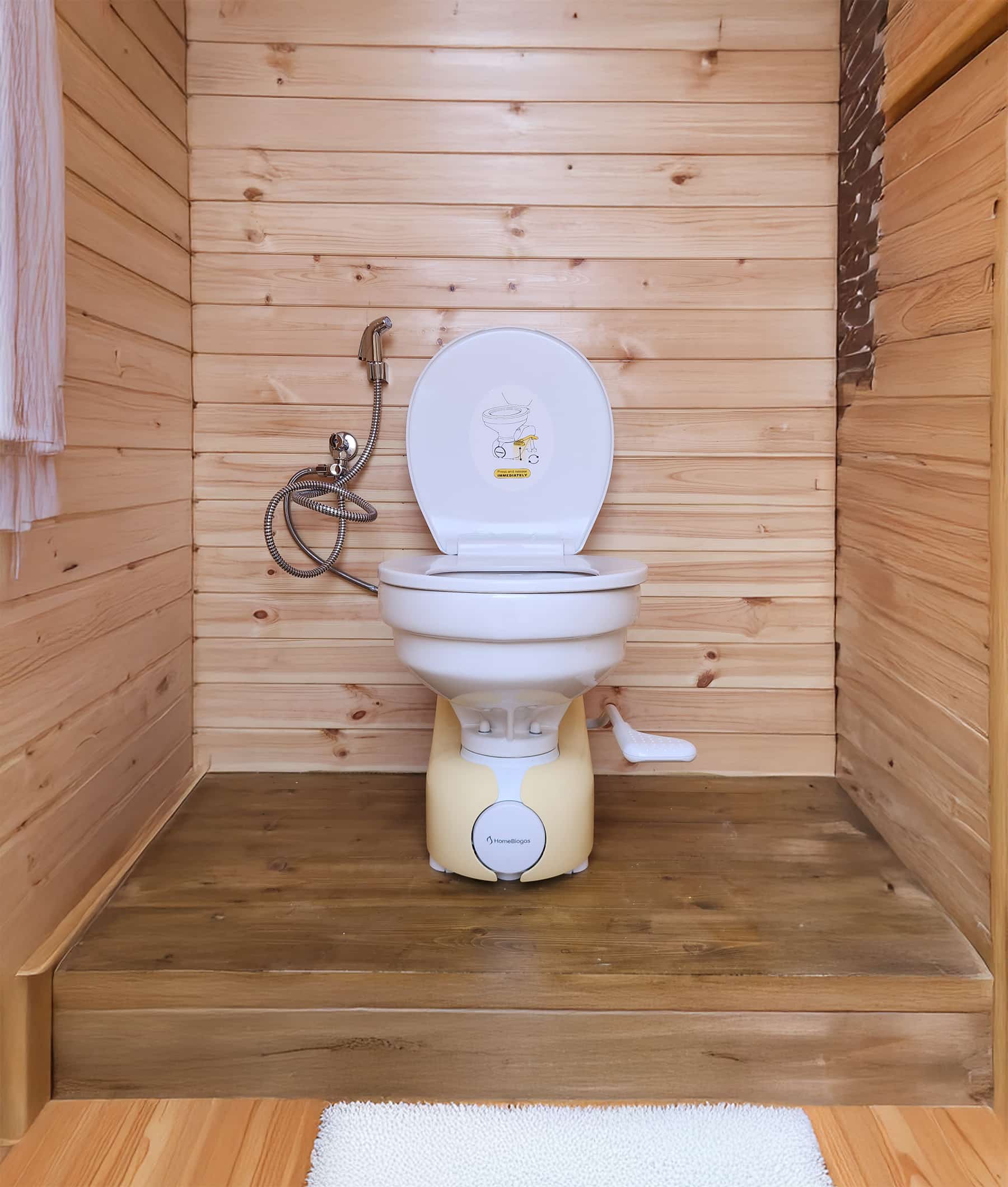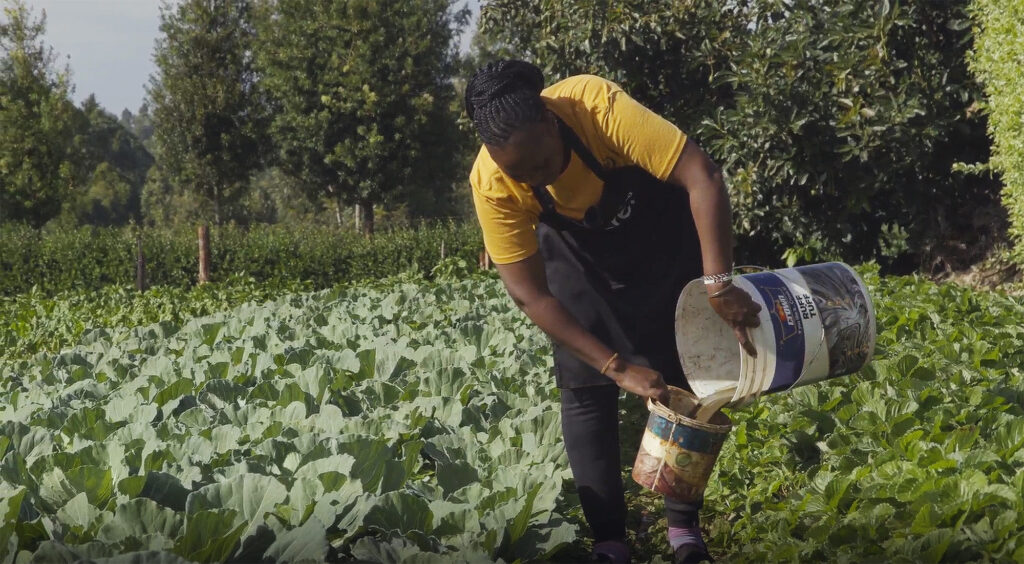
What Is Anaerobic Digestion Biogas?
As you might have understood from its name, anaerobic digestion biogas is a digestive process…but not in the way you might think.
Just like in your own digestive system, anaerobic digestion is a set of processes (outside of your stomach) where microorganisms (bacteria) break down the natural, organic materials in whatever you supply it with. This could be food waste, manure or anything else.
It happens without any oxygen, which is why it’s “anaerobic”.
Once the digestion process is complete, you’ll be left with an end product: biogas. We’ll get more into this and its uses later. But, there’s even more to it than just biogas: other end products of the anaerobic digestion process include compostable material, nutrients and otherwise.
How Anaerobic Digestion Biogas Works?
There are several different processes for anaerobic digestion, depending on your intended end product. For anaerobic digestion biogas production, there are several steps to the process:
- Once the materials you’d like to be broken down are placed into the reactor (the vessel where the anaerobic digestion biogas production takes place!), that’s when the fun really begins!
- Depending on your specific desired end product, the types of microorganisms and bacteria present in the reactor will differ. Once the reactor is turned on, the bacteria present will begin the process of breaking down the material. This is also known as “digestion”.
- The bacteria begin by breaking down the purest form of any organic polymers present, for example, proteins and carbohydrates.
- The acidogenic bacteria present will then convert any sugars or amino acids present into organic acids, hydrogen, ammonia and carbon dioxide.
- Acetogenic bacteria now convert the organic acids present into acetic acids, as well as additional gases (hydrogen peroxide, ammonia and hydrogen).
- Methanogens lastly convert these gases into methane and carbon dioxide. The process is now complete!
- Once the process has been completed (which can take anywhere from a few minutes to a few hours, spending on what your desired end result is), the biogas and “digestate” (other end products of the anaerobic digestion process) are ready to be taken out and used. In the case of biogas, it can be funneled from the reactor to wherever you intend to use it next.

A Quick Overview of the End Products of Anaerobic Digestion Biogas and Digestate
There are two man end results of the entire anaerobic digestion process: biogas and digestate.
Biogas
Biogas is a natural gas, consisting mostly of methane, carbon dioxide, water vapor and hydrogen sulfide. Biogas can be used to generate electricity, heating and pretty much any other system using natural gas. It can also be purified down to its most natural gas components, which can also be used for renewable energy.
Digestate
Digestate is everything left after the anaerobic digestion process has been completed: you’ll find both liquid and solid digestate, separated into their different natural states. The digestate produced by anaerobic digestion has many wide and varied uses, from fertilizer, to animal bedding, to composts and more.

Benefits of Anaerobic Digestion Biogas
While biogas is a naturally occurring gas across nature, landfills and other agricultural systems. There’s far more to the story.
To produce biogas in any optimized or controlled environment, you’ll need to follow the above process. Not only that, but biogas is an incredibly clean, reliable and renewable and adaptable energy source.
The entire anaerobic digestion biogas process has so many wideraning benefits, across all areas of a sustainable-minded household or farm. These include:
- Extra revenue sources. Selling off digestate byproducts, such as manure, provides an extra set of revenue streams.
- Energy independence. Since biogas consists of over 50% methane, it’s a source of renewable, natural gas. Using biogas also helps to reduce more expensive (in terms of cost and climate) sources of energy for everyday living.
- Sustainable food production, using an anaerobic digestion biogas method means any food waste can be easily recycled, with the added digestate producing manure to help grow further sustainable food sources, while less food waste is sent to landfills.
- Less methane released into the atmosphere while also reducing your dependence on neon-renewable energy sources, like fossil fuels.
- Lowered costs for waste treatment, while also increasing opportunities for local economies (on a mass usage scale).
- Reduced smell, pathogens and lowered risk of air and water pollution.
- Can be used alongside any composting procedures already set up.
- Adaptability of the biogas end usage, including biogas for heat, biogas for electric, biogas for combined heat and power, transportation fuel and more.
Introducing: the HomeBiogas Digestion Biogas Solution
If all of this sounds like a way to live sustainably on a macro-level, then you might be interested to know that you can easily live off your own renewable energy source with the HomeBiogas digestion biogas solution.
You can easily generate your own biogas, in your very own home! Some of the awe-inspiring benefits include:
- Generating up to 2 hours a day renewable energy, direct to your stovetop
- Making your own micronutrients digestate
- Receiving back the cost of your purchase in 2 years or under, via non-existent gas bills, garbage collection fees and commercial fertilizer purchases
- Reducing up to 6 tons of carbon emissions a year
It’s super easy to install and use too! You can easily live the self-sustainable life you’ve always dreamed of, with absolute minimal effort. All it takes is installing the HomeBiogas stove in your backyard. You’ll benefit from:
- Putting in up to 6 liters of your food scraps and other organic household waste a day.
- Having enough biogas generated to cook for up to 2 hours a day.
- Enjoying the added fertilizer digestate that is created after every HomeBiogas cook!
The HomeBiogas is incredibly stable, with an estimated lifespan of 15 years! It’s a type of super-composter, and the ideal solution for a sustainable lifestyle.
HomeBiogas: The Best Use of Anaerobic Digestion Biogas on the Market
Whether you’re looking to live a more sustainable lifestyle, are seeking ways to lower costs or to add revenue streams to your farm, the HomeBiogas system is the best home-based anaerobic digestion biogas system on the market.
Running the gamut of cost-saving, energy-saving and waste-saving, the HomeBiogas has everything you need, for you and all the family.






